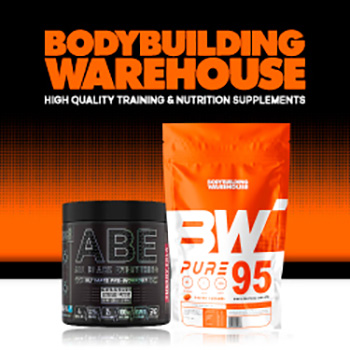
Best Nutrition For Sports Performance
Summary
- Proper nutrition can greatly improve athletic performance by providing the correct fuel at the correct times for energy, recovery, and muscle repair.
- Athletes need personalized nutrition plans based on their sport, training intensity, body composition goals, and individual metabolism.
- Carbohydrates are the primary fuel source for high intensity exercise, with requirements ranging from 3-12g per kg of bodyweight depending on training demands.
- Protein intake timing is just as important as quantity consuming 20-40g within the post exercise “anabolic window” maximizes muscle repair and growth.
- Hydration status can impact performance by up to 30%, making fluid and electrolyte strategies essential components of any sports nutrition plan.
The Role of Nutrition in Athletic Performance
What you eat directly affects how you perform. Nutrition is not just about fuelling your body it's the foundation that determines whether you'll plateau or reach new heights in your athletic pursuits. The right nutritional approach can enhance recovery, build stronger muscles, sharpen mental focus, and provide sustained energy when you need it most.
Consider your body as a high end sports car. Like a luxury car needs the right fuel to run at its best, athletes require the right nutrition to perform at their peak. Studies have consistently shown that the right nutrition can boost performance by 2-3% even in top level athletes a margin that can often be the difference between winning and losing. Besides improving performance, the right nutrition also lowers the risk of injury and prolongs an athlete’s career by aiding tissue repair and reducing inflammation.
Over the last ten years, the study of sports nutrition has changed drastically. We've learned that personalization is crucial what helps a marathon runner isn't the same as what helps a powerlifter or basketball player. This guide will give you scientifically proven methods to help you get the most out of your nutrition for the best performance, no matter your sport or fitness level.
How Your Diet Could Be Sabotaging Your Performance
Despite their intense training, many athletes don't see the performance gains they expect because their diets are sabotaging their hard work. They may not be consuming enough calories, eating at the right times, staying hydrated, or getting the right balance of macronutrients. These nutritional missteps can result in unanticipated tiredness, extended recovery times, recurring injuries, or hitting a performance wall.
Even minor nutritional shortcomings can have a significant effect on sports performance. For instance, a mere 2% decrease in hydration can result in up to a 20% decrease in performance. Likewise, not properly refilling glycogen stores can result in the dreaded “bonk” or “hitting the wall” during endurance events. If you're putting in the work but not seeing the results, it's often your diet that's holding you back.
What's the most annoying part? A lot of athletes think they're eating right, but they're actually undermining their performance without realizing it. Sports nutrition isn't just about eating “healthy.” It's about strategic fuelling that aligns with your specific training demands, recovery needs, and performance goals. In this guide, we'll identify these hidden performance limiters and provide practical solutions to overcome them.
Key Nutrients for Athletic Performance
Being an athlete means focusing on what you put into your body. This includes macronutrients, like carbohydrates, proteins, and fats, as well as micronutrients, like vitamins and minerals. The amount and timing of these nutrients can depend on your sport, your training schedule, and your body. While there are some general guidelines to follow, the best nutrition plan is one that is tailored to you and adjusted as needed.
Athletes must take into account more than just the basics, they need to understand how different nutrients interact and support various physiological functions. Carbohydrates and fats are the fuel for movement, proteins build and repair tissues, and vitamins and minerals facilitate countless metabolic processes that are essential for energy production and recovery. The right balance enables not just survival, but thriving athletic performance.
Carbohydrates: The Main Source of Energy
Carbohydrates are the body's favourite source of energy when it comes to high intensity exercise. Whether you're sprinting, jumping, or lifting heavy weights, your muscles are primarily using glucose and glycogen (which are stored carbohydrates) to create ATP, which is what your cells use for energy. If you don't get enough carbohydrates, your performance in high intensity exercises will quickly go downhill, no matter how in shape you are.
Athletes usually need to consume between 3-12g of carbohydrates per kg of bodyweight each day, depending on how much and how intensely they're training. Endurance athletes who are in the middle of intense training might need as much as 10-12g/kg, while strength athletes usually need between 5-8g/kg, and people who are just working out to stay fit might only need 3-5g/kg. It's best to get these carbohydrates from foods like whole grains, fruits, vegetables, and legumes that are high in nutrients. These foods don't just provide energy they also contain fibre, vitamins, and antioxidants that can help you stay healthy.
Planning when you consume carbohydrates in relation to your workouts can improve your performance even more. Eating 1-4g/kg of carbs 1-4 hours before you exercise makes sure you have enough glycogen stores. If your workout lasts longer than 90 minutes, you should eat 30-60g per hour to keep your blood sugar levels stable and prevent fatigue. After your workout, you should eat 1-1.2g/kg in the first few hours to refill your glycogen stores. This is especially important if you work out more than once a day.
Protein: The Key to Muscle Building and Repair
Protein is a critical component of sports nutrition as it provides the essential amino acids necessary for muscle repair, growth, and adaptation in response to training stress. While carbohydrates are the primary fuel source for performance, it is protein that translates that training stimulus into actual physical improvement. Recent studies suggest that most athletes require 1.6-2.2g of protein per kg of bodyweight each day, spread out over 4-5 meals for optimal muscle protein synthesis.
When you consume protein is almost as important as how much you consume. After you exercise, there is a period of time known as the “anabolic window,” during which your body is more sensitive to nutrients. Consuming 0.3-0.5g/kg of high quality protein (usually 20-40g) during this time will help your muscles recover the most. This dose of protein should ideally contain about 2-3g of the amino acid leucine, which is the main trigger for muscle protein synthesis. Good sources of this protein include whey protein, lean meats, eggs, dairy, and combinations of plant proteins that provide a complete amino acid profile.
Protein is crucial for more than just building muscle. It is also essential for immune function, enzyme production, and hormonal balance, all of which are important for consistent training and performance. Athletes who are undergoing intense training periods, restricting their calorie intake, or recovering from an injury may benefit from consuming more protein (up to 2.2g/kg or sometimes even more) to maintain their lean mass and support their recovery.
Healthy Fats: Long Lasting Energy and Recovery
Fats have seen a reputation makeover in the world of sports nutrition. From being demonized, they are now seen as vital for hormone production, vitamin absorption, and long lasting energy during activities of longer duration. For athletes, fats should make up about 20-35% of total calorie intake, with a focus on unsaturated sources like avocados, olive oil, nuts, seeds, and fatty fish.
Medium chain triglycerides (MCTs) and omega-3 fatty acids are particularly important in sports nutrition. MCTs provide an easily accessible source of energy that doesn't require insulin to be used, which can be beneficial during long workouts. Omega-3s, especially EPA and DHA, can help reduce inflammation caused by exercise, aid in recovery, and potentially improve the delivery of oxygen to muscles during exercise.
Fat might not be the first source of fuel for high intensity workouts, but it's vital for metabolic flexibility. This is the body's ability to switch between burning carbohydrates and fats, depending on the intensity of the exercise. Athletes can improve their fat adaptation through a strategic diet, which can help them save glycogen stores during long workouts. This can significantly increase their endurance.
Performance Enhancing Micronutrients
While macronutrients usually steal the show, the real stars of the sports nutrition world are vitamins and minerals. Iron, magnesium, zinc, B vitamins, and vitamin D are all crucial for energy production, oxygen transport, muscle contraction, and recovery. Even slight deficiencies can hinder performance before clinical symptoms become apparent.
Women who play sports, long distance runners, and people on low calorie diets are more likely to have an iron deficiency. This deficiency can reduce the amount of oxygen that gets to your muscles and slow down the process that turns food into energy. A lack of vitamin D is also a common problem for athletes, especially in the winter in northern parts of the world. This can weaken your immune system, bones, and muscles. Regular blood tests can help you spot these problems before they start to affect your performance.
Athletes can deal with the oxidative stress caused by intense training by consuming antioxidants such as vitamins C and E, as well as phytonutrients from colourful fruits and vegetables. However, it's important to time consumption correctly. It's best to focus on consuming these during recovery periods rather than immediately before training. This is because there's some evidence that suggests that taking in too many antioxidants before a workout might actually reduce the positive effects of training.






